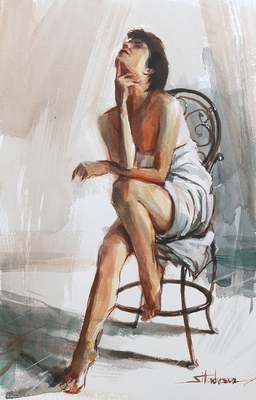Artwork celebrating joy, peace, goodness, light, life, and hope. Mastodon

One of my daughters (I hesitate to say, "the middle child," because she dislikes that appellation) mentioned a mainstream media statement she ran into the other day:
"They said that ordinary people shouldn't do their own research, but just leave this up to the experts. It went so far as to imply that it's dangerous to ask questions."
This would be laughable if it weren't unfortunately serious, and one wonders why sensible people don't rise up and say, "Who ARE these androids pontificating this verbal fecal matter?" Well, they're the same disengaged specimens of humanity telling us not to dare even converse with one another, because the spittle and mucus and droplets emitting from our faces -- plastered over by three or four or five layers of manufactured paper product -- will contaminate others with some viral pestilence of frightening, and apparently never ending, proportions. (When you get a chance, look up the Greek alphabet; there are a lot of letters yet to go through.)
If we stop and think for a moment -- something we should do on a regular basis -- commonsense tells us that conversing with one another, rather than passing on germs, passes on thoughts and questions, doubts and ideas, observations and the encouragement to investigate. And these are not good things in a society that is Trickle Down Ruled, with the voices from above -- "The Experts" -- informing the people trickled upon what to believe, how to behave, what to wear, where to go, what to think. It's bad enough when they're advertising some cheap plastic product that no one needs, but when they delve into our spirituality, health, human dignity, lifestyle, private thoughts, and, well, next breath, then the repercussions of not asking questions become very serious, very quickly.
You don't have to be an expert to ask questions. After all, in the timelessly apt Hans Christian Andersen's story, The Emperor's New Clothes, it was a child who saw through the facade. The adults were so concerned about what those around them thought, that they were afraid to question anything at all.